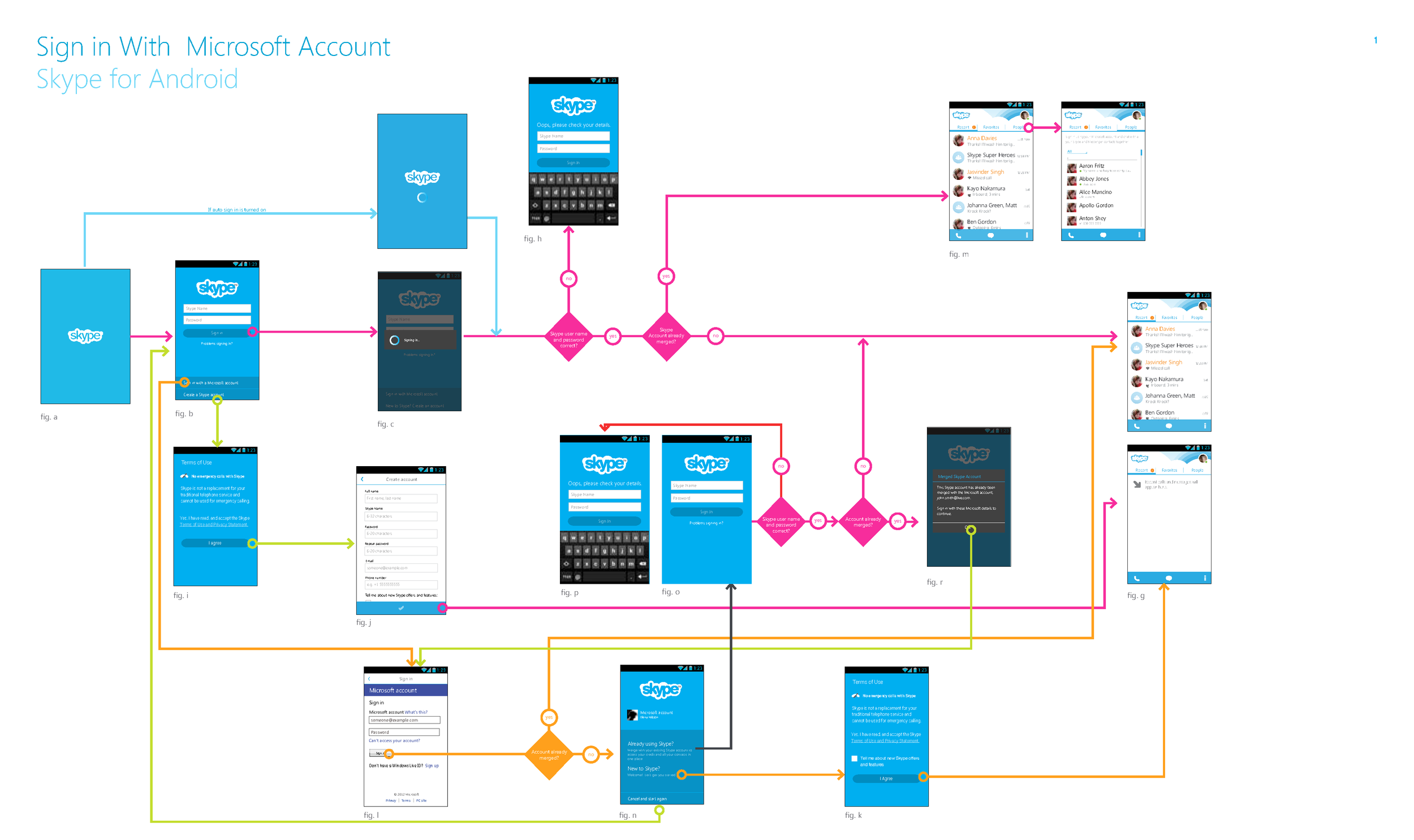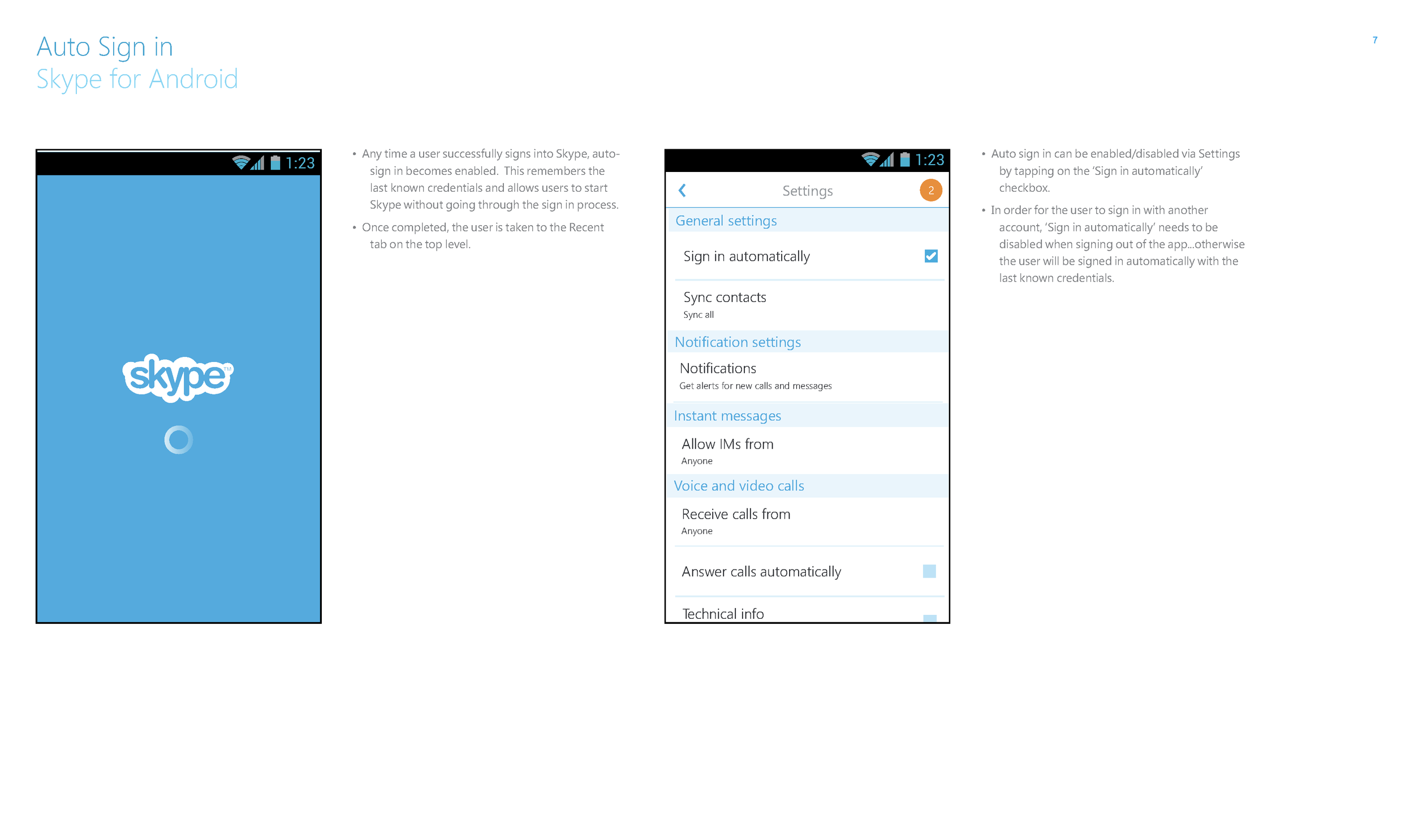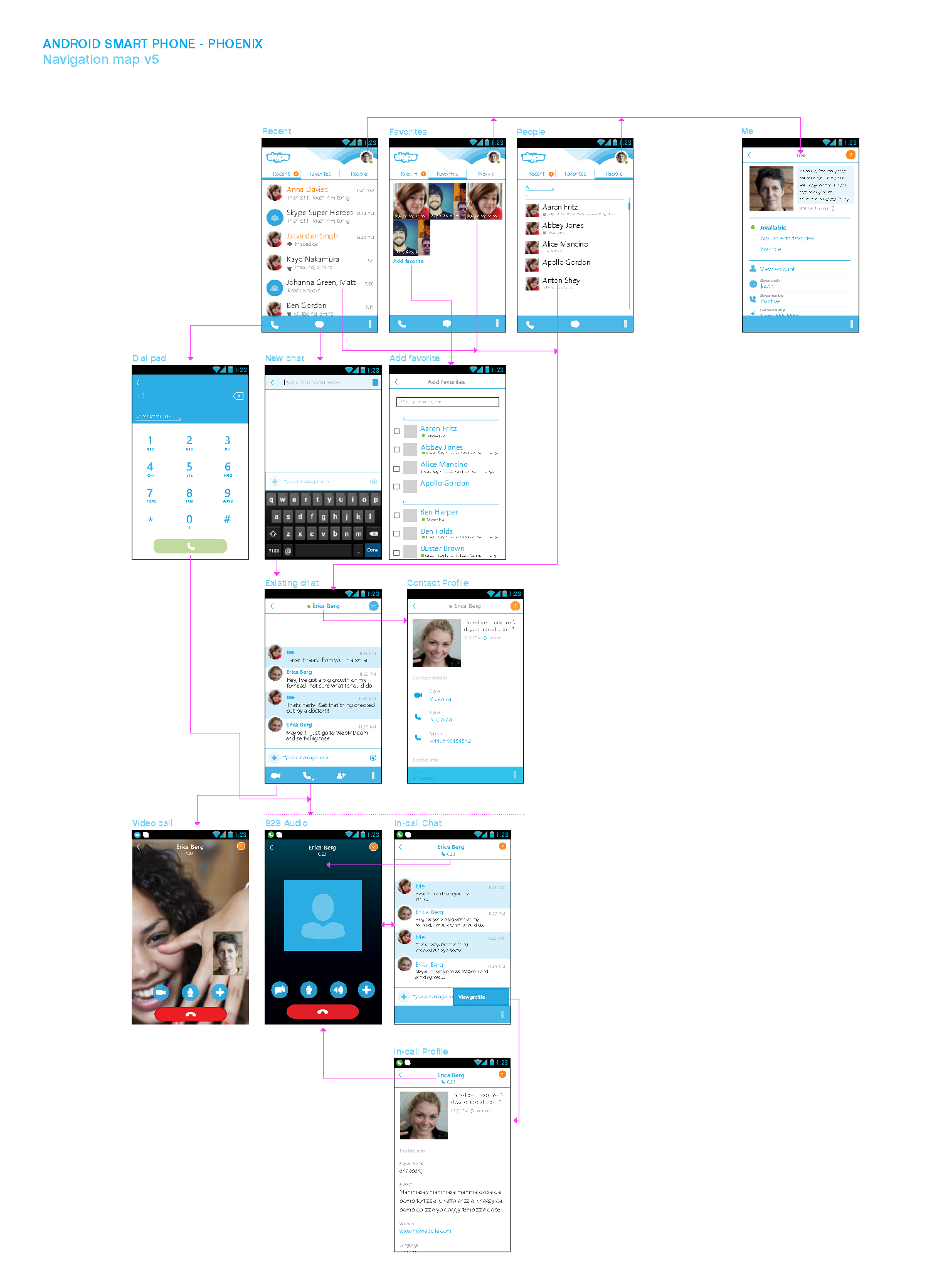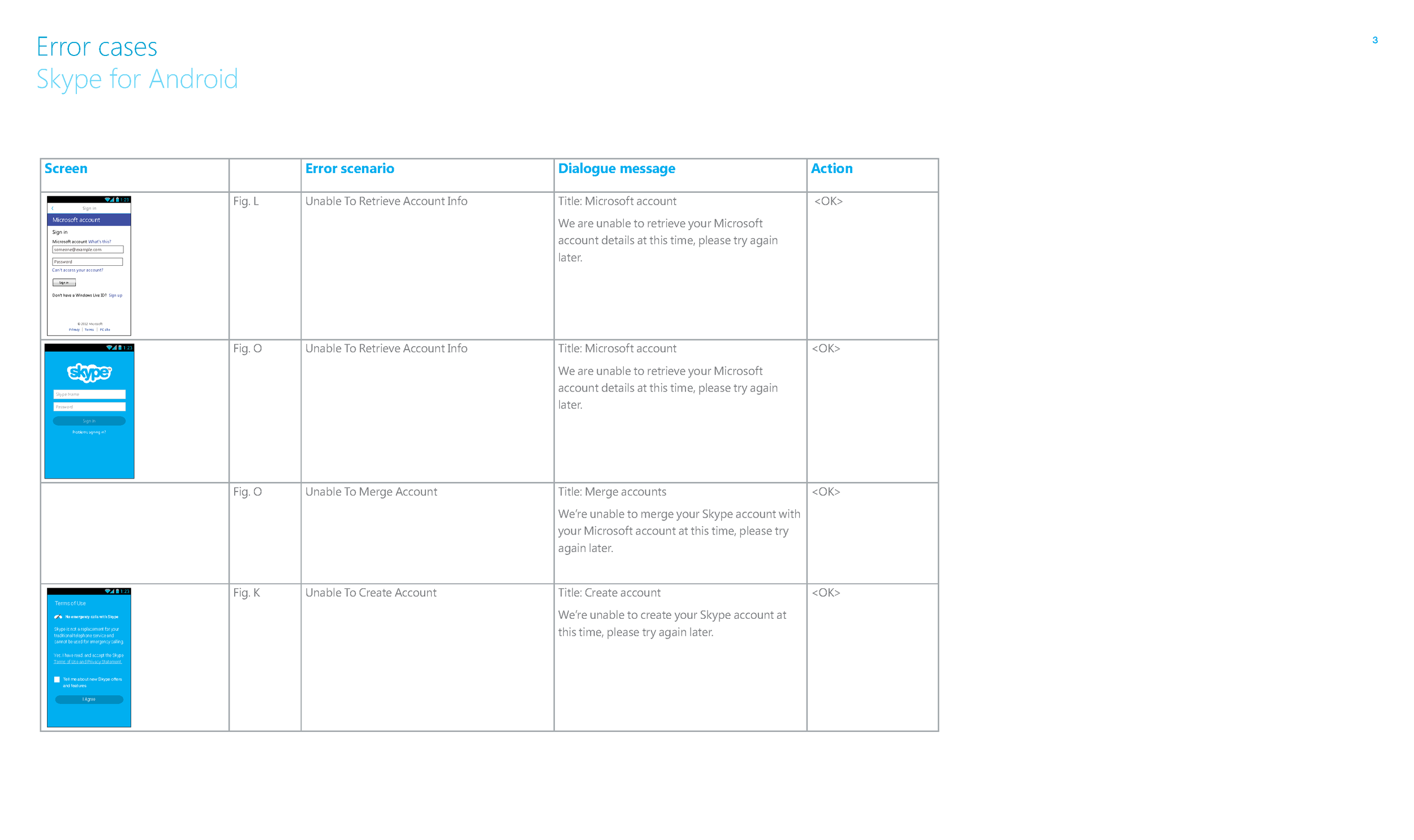
Skype 4 for Android
As the design lead for Skype for Android (versions 2.5 - 5.x), I spearheaded a complete redesign of the Phone and Tablet products, contributing to a user base of 100 million.
Working closely with a team of designers, product managers, developers, and testers, I focused on creating a unique feature set optimized for Android's Ice Cream Sandwich platform while ensuring alignment with Skype’s overall brand strategy.
This is a quick overview of the project and deliverables. Feel free to view the detailed case study.
Impact
-
Achieved 100 Million Customers
Skype for Android 4.0 represented the culmination of over a year of planning and design, and almost 9 months of incremental delivery to achieve a completely re-architected and re-designed experience for more than 100M customers.
-
3.9 Stars on the Google Play store
The Google Play Store rating improved from 3.6 to 3.9 stars
-
Reduced navigation related use errors by 30%
30% reduction in navigation related use errors by moving away from the dashboard design pattern used in the 2.x version
-
Enhanced contacts and messaging modes
With the integration of Microsoft Messenger contacts into Skype, we made it much easier to find the people you already know on Skype.
In addition, we introduced the ability to switch between Skype, Messenger, and SMS instant messaging in the Skype app
-
Enhanced Asynchronous Chat features
Enabled users to share and communicate asynchronously on mobile by Integrating file transfer, voice mail, and video messaging into the chat experience
-
Tablet form factor
Leveraged Android Ice Cream Sandwich to enhance the tablet experience and take advantage of additional screen real estate and features, enabling people to multi-task and work with more efficiency
-
Microsoft Modern Design
It was the first non-Microsoft product to adopt the Microsoft Modern design style.
The design was coherent with Skype’s other products leveraging both Microsofts Modern design system and Skype's brand
Recent messages
Favorites
People
Chat conversation
Dial pad
Video call
Voice call
New chat

Sign in flow

Auto-sign in

Information architecture

Error messages
Tablet wireframe - Recent, Favorites, People
Tablet wireframe - Dial pad
Tablet wireframe - People detail view
Tablet wireframe - New group chat
Objective
We aimed to enhance asynchronous chat, introduce a more robust tablet UI, and step toward consistency across Skype’s desktop and mobile products.
Problem
Mobile platforms around the 2012-2013 time frame had great variations in how design patterns were expressed.
This became problematic for Skype users who used Windows, Mac, iPhone, and Android, which resulted in a lack of engagement to some platforms that did not have parity with asynchronous chat features, platform-specific UI mechanisms used, or those with differences in workflows.
In addition, finding people that you personally know was difficult using Skype’s directory, so there was an effort to increase visibility of contacts that you may know across Skype and Microsoft Messenger.
Design process
Strategy
Leveraged user research from Skype and Microsoft Messenger to understand issues with connecting with friends and family and enabling Microsoft Messenger contacts to be ingested into Skype
Engaged an A/B testing group of over 1,000 external users to help evaluate new features and iterations of the UI
Audited the chat experiences across several competitors, including Microsoft to identify key attributes that make up a great conversation view
Less clutter by progressively disclosing time / date stamps
Direct access to controls vs menu based controls
Conversation view optimized for rich chat objects, such as voicemail, video messages, etc
Collaborated with other teams including Design Research, Mac, Windows, iOS, Android, TV
Planned features and releases with Product and Engineering
Leveraged the Microsoft Modern Design style as a base design strategy and adapt to the Android platform as needed
Solution
Designed wireframes, flow diagrams, specifications, content, and prototypes
Integrated file transfer, SMS, and Messenger contacts into the chat experience
Designed the 2 column tablet UI while respecting Android patterns and Skype’s brand guidelines
Engaged in user testing to validate or invalidate the designs
Collaborated closely with product and engineering to implement a high quality experience
See below for examples of the UI and design specifications, or go to a detailed case study (password required).













